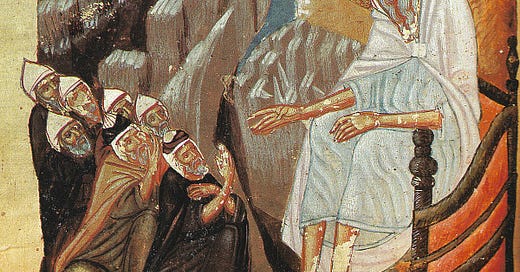For most of us, our notion of the “demonic” is derived from popular culture. Ever since Linda Blair spun her head 190 degrees and emitted pea soup in the film version of The Exorcist in 1973, outdoing Hammer in the gross-out pop-demonism department, there has been a seemingly endless stream of serious and not-so-serious (e.g., Ghostbusters) depictions of demons and demon-possession, influencing how we picture the devilish and the spiritually malign. These popular representations get their inspiration in turn from partially digested mythological, multicultural, and medieval sources; more deeply still, they draw on humanity’s collective imagination, which predates recorded history. Demons are, quite simply, our vision of evil personified; more to the point, the popular narrative most of us have imbibed is that they are oppressive powers that threaten or seduce us, malicious entities that can take over our minds and wills, creeping into our helpless psyches, filling our heads with the ugliest fantasies, and driving us to commit atrocious acts. Against them, we can muster no effective resistance. Rituals of exorcism (in these scenarios) are the last resort against such terrifying forces… Well, that’s the popular conception, at any rate. So, it may come as a bit of a surprise to some of us to learn that the earliest representatives of the Christian contemplative tradition – the desert monastics – harbored no such paralyzing dread of demons. They regarded “them” more as unruly personified thoughts than as unstoppable titanic powers; more as besetting (albeit, sometimes frightening) nuisances, requiring of the disciple a process of inner purgation, than as entities instilling profound, mind-numbing horror. What “demons” represented to them were not insuperable infernal powers, but insidious distractions from attentiveness to “the one thing necessary” (see Luke 10:42). And although the early monastics didn’t doubt the actual existence of evil spirits, at a rudimentary level theirs was also a keen psychological insight: thoughts do not simply emerge from our own minds but impact us from the outside as well.
Keep reading with a 7-day free trial
Subscribe to The Pragmatic Mystic to keep reading this post and get 7 days of free access to the full post archives.



